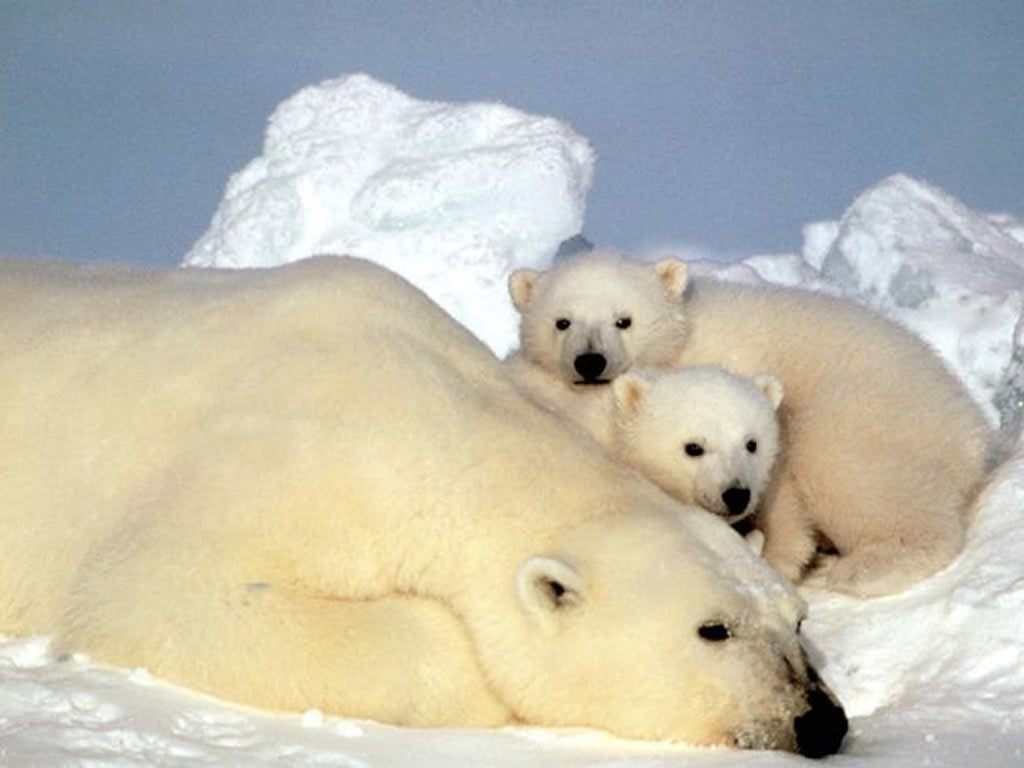Climate change scientist faces lie detector test
Fears of US witch-hunt over wildlife researchers who highlighted the deaths of polar bears

It's the next step in "Polarbeargate" – one of two scientists whose report on dead polar bears in the Arctic helped make the animal a potent symbol of climate change has been asked to take a lie detector test as part of an investigation by US agents.
The 2006 report from American wildlife researchers Jeffrey Gleason and Charles Monnett told of dead bears floating in the Arctic Ocean in 2004, apparently drowned, and focused attention on the vulnerability of the animals to the melting of the Arctic ice, which they need for hunting. Widespread references were made to the dead bears and they figured in the film An Inconvenient Truth, made by Al Gore to highlight the risks of global warming.
But earlier this year, allegations were made within the US Department of the Interior that acts of scientific misconduct might have been committed in relation to the report, and the Department's Office of Inspector General (OIG) began an inquiry.
Mr Monnett, who works for the Bureau of Ocean Energy Management, Regulation and Enforcement, a Department of the Interior agency, became the focus of the inquiry and was interviewed several times by OIG agents; in July he was suspended.
The OIG said the suspensions followed concerns about a research contract he had been involved in awarding, and not his polar bear article. But some pressure groups alleged the episode represented political interference with science and was a witch-hunt, or at least an attempt to intimidate researchers whose studies might affect the politics of climate change. The issue became known in some quarters as "Polarbeargate".
Kassie Siegel, director of the Climate Law Institute with the Centre for Biological Diversity, a charity that campaigned to have the polar bear listed as a threatened species in the US, said at the time: "There's no way this can have anything but a chilling effect on the ability of other scientists to carry out their work."
Mr Monnett has now returned to work but the investigators are now focusing on his colleague and fellow author of the report, Mr Gleason, who has already been interviewed, earlier this year. This week Mr Gleason was interviewed intensively by investigators and asked if he would take a polygraph (lie detector) test; he responded that he would only take such a test if the agent interviewing him took one as well.
"There appears to be kind of a desperate, almost fierce nature to pursue this until they find something," said Mr Gleason's lawyer, Jeff Ruch, of Public Employees for Environmental Responsibility. Mr Ruch accuses the investigators of taking issues raised during the normal scientific peer-review process and acting as though they constitute evidence of wrongdoing.
He has filed a complaint with the department under its new scientific integrity policy, saying these issues should be investigated not by the Office of Inspector General, but by a review performed by other scientists.
Polar bears are the world's largest land carnivores and it is widely believed that extensive melting of the summer sea ice in the Arctic will seriously compromise the bear's ability to hunt the seals which are their principal food.
Join our commenting forum
Join thought-provoking conversations, follow other Independent readers and see their replies
Comments
Bookmark popover
Removed from bookmarks